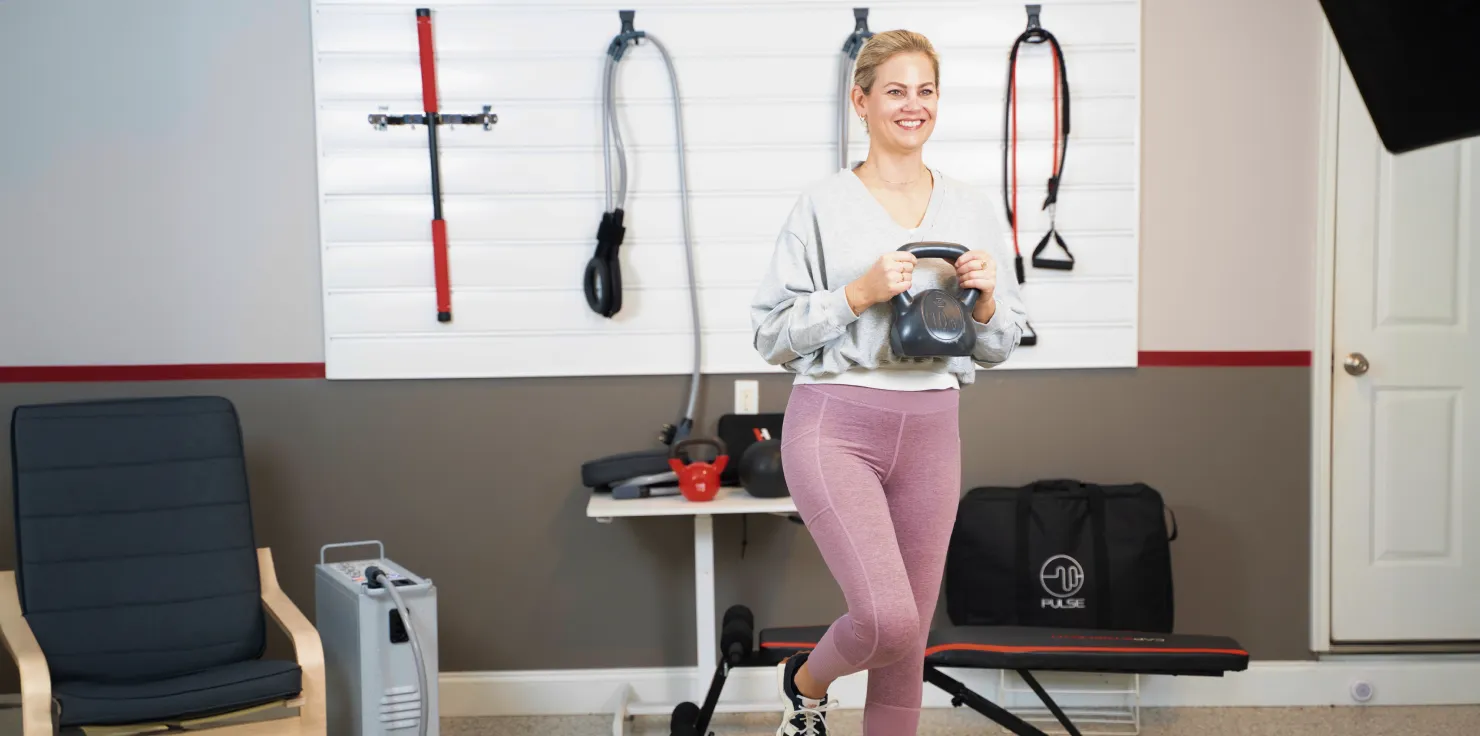Collagen is a vital protein that plays a crucial role in maintaining the structure and function of various tissues in the body. This includes the skin, hair, bones, and joints. As we age, our body’s natural collagen production slows down, leading to visible signs of aging such as wrinkles, sagging skin, and joint pain.
Supporting collagen synthesis is essential for maintaining youthful skin, healthy hair, strong bones, and overall well-being. This blog will explore eight effective ways to boost collagen production, including the use of PEMF therapy.
Let’s dive in and discover how to naturally enhance your body’s collagen levels!
Understanding Collagen Synthesis
What is Collagen?
Collagen is a type of protein that is essential for the structure and function of various tissues in the body. It is the most abundant protein in the human body, making up about 30% of the total protein content. Collagen is found in many parts of the body, including the skin, bones, cartilage, tendons, and ligaments.
There are several different types of collagen, each with its own specific functions. Some of the most important types of collagen include:
Type I collagen: This is the most common type of collagen, found in skin, bones, tendons, and ligaments.
Type II collagen: This type of collagen is found in cartilage, providing structure and support to joints.
Type III collagen: This type of collagen is found in skin, blood vessels, and muscles.
Factors Affecting Collagen Production
Collagen production naturally declines as we age. This is why our skin becomes less elastic and our joints become stiffer as we get older. However, lifestyle factors can also affect collagen production. Some of the factors that can contribute to decreased collagen synthesis include:
Sun exposure: Exposure to ultraviolet (UV) rays from the sun can damage collagen and elastin, leading to premature aging.
Smoking: Smoking can accelerate the breakdown of collagen, leading to wrinkles and sagging skin.
Poor diet: A diet that is low in essential nutrients can also affect collagen production.
Effective Ways to Support Collagen Synthesis
1. Maintain a Balanced Diet
A balanced diet that is rich in collagen-boosting nutrients can help support collagen synthesis. Some of the key foods that promote collagen production include:
Bone broth: Bone broth is a rich source of collagen and amino acids that are essential for collagen production.
Citrus fruits: Citrus fruits, such as oranges, lemons, and grapefruits, are high in vitamin C, which is essential for collagen synthesis.
Leafy greens: Leafy greens, such as spinach, kale, and broccoli, are packed with antioxidants that can help protect collagen from damage.
2. Take Collagen Supplements
Collagen supplements can be a convenient way to boost your collagen intake. There are several different types of collagen supplements available, including hydrolyzed collagen and collagen peptides.
3. Consume Vitamin C
Vitamin C is a powerful antioxidant that plays a crucial role in collagen synthesis. It helps to protect collagen from damage and promotes its production.
Good sources of vitamin C include:
- Citrus fruits like oranges, lemons, grapefruits
- Strawberries
- Bell peppers
- Kiwi
- Broccoli
- Kale
4. Ensure Adequate Protein Intake
Protein is essential for the production of collagen. Make sure you are consuming enough protein in your diet.
High-protein foods include:
- Chicken
- Fish
- Eggs
- Beans
- Lentils
- Tofu
5. Use PEMF Therapy
PEMF therapy utilizes electromagnetic energy to stimulate and exercise our cells, helping them function better overall. When cells have the energy they need to do their jobs better, this may affect your body’s collagen production.
While PEMF therapy cannot directly produce collagen, it can create an environment that is conducive to optimal cellular function, which may indirectly support collagen synthesis.
Click here to learn more about PEMF therapy, how it works, and its potential benefits.
6. Protect Your Skin from UV Damage
Exposure to ultraviolet (UV) rays from the sun can damage collagen and elastin, leading to premature aging. Protect your skin from sun damage by:
- Using sunscreen with a high SPF
- Wearing protective clothing
- Seeking shade during peak sun hours
7. Stay Hydrated
Staying hydrated is essential for healthy skin and overall well-being. Dehydration can lead to dry, flaky skin and can also affect collagen production.
Tips for staying hydrated:
- Drink plenty of water throughout the day
- Carry a reusable water bottle with you
- Eat foods that contain high water content, such as fruits and vegetables
8. Incorporate Antioxidants
Antioxidants can help protect collagen from damage caused by free radicals. Some foods that are rich in antioxidants include:
- Berries
- Nuts
- Dark chocolate
- Leafy greens
Integrating Collagen-Supporting Practices into Daily Routine
Creating a Collagen-Boosting Meal Plan
An example of a daily meal plan rich in collagen-supporting foods could be:
Breakfast: Oatmeal with berries and nuts, a side of Greek yogurt
Lunch: Salad with grilled chicken, leafy greens, and a hard-boiled egg
Dinner: Salmon with roasted vegetables and a side of brown rice
Snacks: Fruit, nuts, or a collagen smoothie
Here are some simple tips for meal prepping and planning:
Plan your meals ahead of time: This will help you make healthy choices and avoid unhealthy temptations.
Cook in bulk: Prepare meals in advance to save time during the week.
Pack healthy snacks: Keep healthy snacks on hand to avoid unhealthy cravings.
Establishing a Skincare Routine
A healthy skincare routine can help to promote collagen health and reduce the appearance of wrinkles.
Skincare products and practices that promote collagen health could include:
Use a gentle cleanser: Avoid harsh cleansers that can strip your skin of natural oils.
Apply a moisturizer: Moisturizing your skin helps to keep it hydrated and supple.
Use a serum containing vitamin C: Vitamin C is a powerful antioxidant that can help boost collagen synthesis.
Exfoliate regularly: Exfoliation can help remove dead skin cells and keep your skin healthy.
It’s important to be consistent with your skincare routine to see results. Try to use the same products every day and avoid skipping steps.
Combining Different Approaches
For optimal results, it’s recommended to combine various approaches to support collagen synthesis. This can include:
Dietary changes: Eating a balanced diet rich in collagen-boosting nutrients
Lifestyle changes: Protecting your skin from sun damage, staying hydrated, and managing stress
Supplements: Taking collagen supplements or vitamin C supplements
Therapeutic practices: Incorporating PEMF therapy into your routine
By combining these approaches, you can maximize your efforts to boost collagen synthesis and improve your overall skin health!
Conclusion
Supporting collagen synthesis is essential for maintaining healthy skin, hair, bones, and joints. By adopting a holistic approach that includes dietary changes, lifestyle modifications, and therapeutic practices, you can effectively boost collagen production.
Remember, consistency is key when it comes to supporting collagen synthesis. Incorporate these strategies into your daily routine and be patient. Over time, you’ll likely notice positive changes in your skin, hair, and overall health.
To learn more about how PEMF therapy can enhance your overall well-being, explore www.pulsepemf.com! Our team of experts can provide you with valuable information and resources.















